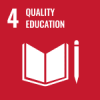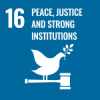Indonesia is still not seriously dealing with corruption crimes (TPK). Lecturer of the UGM Faculty of Economics and Business, Rimawan Pradiptyo, sees that the handling of corruption is still not considered to be important, as shown by the lack of regulations needed to eradicate TPK.
Rimawan said that there are still many criminal acts of corruption that have not been regulated in Indonesia, such as private sector corruption. According to him, 59 percent of corruption cases in Indonesia come from private companies. Other unregulated TPKs include illicit enrichment (enriching oneself through illegal channels), foreign bribery (bribes that occur between companies and foreign officials), and trading of influence (corruption committed by people who are not the organizers of the state but controls state projects by exploiting proximity to power).
The recommendations of the UNCAG (United Nations Convention against Corruption) in 2003 signed by Indonesia already mentioned the four types of corruption, said Rimawan. Indonesia was one of the first countries to sign the convention. In addition, Indonesia also has Law no. 7 of 2006 to acknowledge that Indonesia will include the UNCAG recommendations above the Indonesian legislation.
“However, the fact is that until now, these four things (recommendations above) have not been regulated,” said Rimawan at the PolgovTalks event on the YouTube channel of the Department of Politics and Government – Universitas Gadjah Mada, Tuesday (6/4).
Rimawan assessed that the Anti-Corruption Law in Indonesia was outdated. Rimawan also regretted that the events that occurred in Indonesia showed weakening law enforcers, such as the revision of the KPK Law carried out by the House of Representatives (DPR) in 2019.
“Recommendations from colleagues who do a lot of studies on corruption crimes always recommend one thing, namely the revision of the Anti-Corruption Law, not the revision of the KPK Law,” said Rimawan.
Impact of not taking corruption seriously
Corruption can lead to inefficiency in the economy. Rimawan explained that the country will not progress as long as corruption cases are still high. All countries that currently have the status of developed countries have low corruption cases.
“Never dream of a developed country with high corruption, it doesn’t exist,” added Rimawan.
Therefore, Rimawan hopes that leaders in Indonesia can understand the current situation in dealing with corruption. Leaders are expected to play a role in encouraging reforms in the handling of corruption in Indonesia. This is because all currently developed countries have carried out massive reforms in the past in handling corruption crimes, he said.
“Singapore, since independence, they immediately focus on handling anti-corruption, talk about reform, reform, and reform,” said Rimawan.
Source: https://www.ugm.ac.id/id/berita/20970-indonesia-belum-serius-tangani-korupsi



